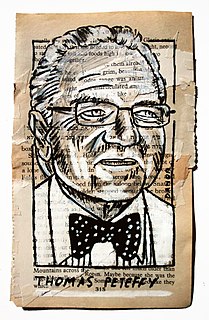A Quote by Frances Wright
The man possessed of a dollar, feels himself to be not merely one hundred cents richer, but also one hundred cents better, than the man who is penniless; so on through all the gradations of earthly possessions - the estimate of our own moral and political importance swelling always in a ratio exactly proportionate to the growth of our purse.
Related Quotes
Fifty-nine cents. For years, I wore a button - '59 cents.' Many of my colleagues wore it also. The purpose was so that people would come up and ask, 'What does '59 cents' mean?' One could then launch into a discussion about how women working full time in the U.S. earn 59 cents for every dollar earned by men.
We have Latinas in California making 55 cents on the dollar. Black women making 63 cents on the dollar. White women making 78 cents on the dollar. It doesn't change very much year by year, it might go up or down a penny, but oftentimes, the years that it goes up are the same years that men are making a little bit more. It's pretty much always in proportion.
African Americans, in particular, saw their cumulative wealth crash. They used to have 10 cents on the dollar of the average white family. That 10 cents on the dollar that the African American family used to have crashed down to 5 cents on the dollar, given the focus of predatory lending on the African American community and the degree to which they were really devastated by the foreclosure crisis. So yeah, I think there is a lot of disappointment out there.
Have we the courage and the will to face up to the immorality and discrimination of the progressive tax, and demand a return to traditional proportionate taxation? ... Today in our country the tax collector's share is 37 cents of every dollar earned. Freedom has never been so fragile, so close to slipping from our grasp.
'As a fraction of your tax dollar today, what is the total cost of all spaceborne telescopes, planetary probes, the rovers on Mars, the International Space Station, the space shuttle, telescopes yet to orbit, and missions yet to fly?' Answer: one-half of one percent of each tax dollar. Half a penny. I'd prefer it were more: perhaps two cents on the dollar. Even during the storied Apollo era, peak NASA spending amounted to little more than four cents on the tax dollar.






































